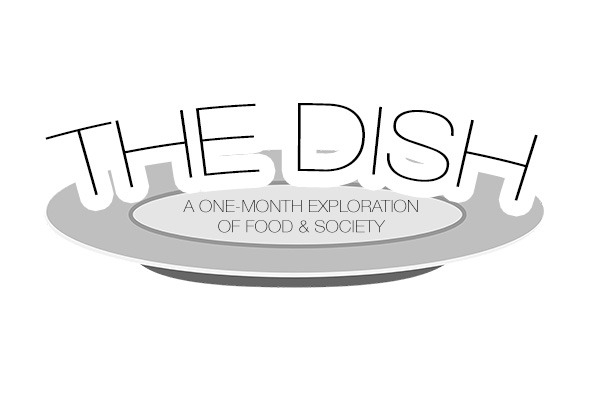Monday morning I woke up hungry. I had slept 10 solid hours, and when I got out of bed I showered while fantasizing about the cinnamon-raisin bagel and mug of hot coffee that would come next.
Except it wasn’t just a regular Monday. I walked into the kitchen, started the coffee maker and put a bagel in the toaster. The bagel popped up and I cursed loudly; I wasn’t supposed to eat anything today, and I had almost forgotten, almost spoiled the experiment. I begrudgingly put the toasted bagel in the trash and poured my coffee down the drain.
How privileged we are, that we have to throw away food and actively avoid snacking in order to not eat for a day—and it’s a game of willpower, not a thing done out of necessity or sacrifice.
Close to 800 million people around the world report feeling hunger daily, not because they don’t have time to eat a full meal but because the meal simply isn’t available to them, according to statistics from the World Food Program. This means approximately 1 in 9 people goes hungry each day. In sub-Saharan Africa, that number is actually closer to 1 in 4.
Diabetes and heart disease have been called “diseases of kings;” excess causes these problems, not deficiency.
Case in point: here we are in America, eating to obesity, eating to the point where the minor toxicities in our foods build up to levels that poison us, giving us the diseases of kings.
The article sparking my interest in the topic of fasting concerns a man who experiences debilitating arthritis among some other health issues. The man’s name is Ben Marcus; the article is called “How the terrible, insufferable six-day water fast made me a new man,” and it ran via GQ Magazine in November 2013.
Medication hadn’t helped Marcus’s health issues, at least long-term. He decided to try fasting for an entire week in a specialized sleep-and-diet clinic. By the end of his stint his worst symptoms had abated and his health stats, according to the clinic’s doctors, were as good as a healthy teenage boy’s.
He had been dealing with minor allergies and intolerances his whole life, which had contributed to innate health issues, but the idea of taking food out of the equation isn’t feasible to most people. It was a move of desperation for him, and one that paid off.
There was only one way to find out for myself how this would feel in practice: I had to give it a shot.
It was tempting to wait until a lazy Saturday or Sunday to try my all-day fast. The biggest factor in my choice, however, was making the “study” all about practicality. Since we can only occasionally lay around all day and watch TV or nap through the afternoon, what does it matter if that’s the kind of day I choose to not eat? That doesn’t even seem very interesting.
My stomach growled audibly as I walked into the photo lab for my afternoon class. This was going to be interesting. I had packed a granola bar and a bottle of water in case I started to feel dizzy, but I tried to conserve energy and sit when I had the chance to; I made it through class without incident and without cheating on my “diet.”
After my class I found myself at Wal-Mart (yes, I buy my groceries there, and I’ll accept no judgement on that basis). This was where I felt, for the first time that day, that I was becoming what the young folks call “hangry.” The Snickers commercials aren’t so funny when I’m cast as Danny Trejo or Steve Buscemi instead of a mild-mannered Brady Bunch kid.
I got home without committing any crimes—I may have blacked out for a minute, I’m not entirely sure—and unloaded my groceries into the fridge and cabinets. I had felt shaky earlier and kept an unsteady grip on myself. But now I was restless. I kept getting these odd little rushes of energy, in spite of my low blood sugar.
I had bought new running shoes that afternoon; like any new-shoe day, I had the urge to get outside and test them out. I had planned to take the day off from any sort of excess physical activity, but the shoes were so cool, and I felt good enough to try a couple of miles on a PEIF treadmill.
I felt slightly unsteady as I walked in, but quickly changed into shorts and a T-shirt and picked out a running playlist. The first half-mile felt easy enough. As soon as I lifted the pace, though, I felt something very familiar; I was low on fuel. I called it quits after suffering through two miles and doing some half-assed pushups.
The workout, I decided, had been a mistake, although the shoes had performed extremely well. I ended up having sleep for dinner.
Tuesday morning I got up and was hungry only in spirit. I knew I needed to eat, so after my shower I went into the kitchen and scrambled some eggs. I wouldn’t feel completely recovered from my fast—just one single day— until the following evening.
For the typical American, who is surrounded by all sorts of food all the time, a brief fast may have its health benefits. However, because my own fast was so brief, what I gained had more to do with perspective on hunger than detoxifying my body and gaining a physical benefit. Though a one-day fast is just a taste of the massive hunger in the world, it’s a lesson in humanity and willpower that I believe holds value.
This article is part of a new series dealing with contemporary food in society. Managing Editor Mike Klarin is exploring the food of the future and its varying effects. Stay tuned for an article next week about his experience.




























